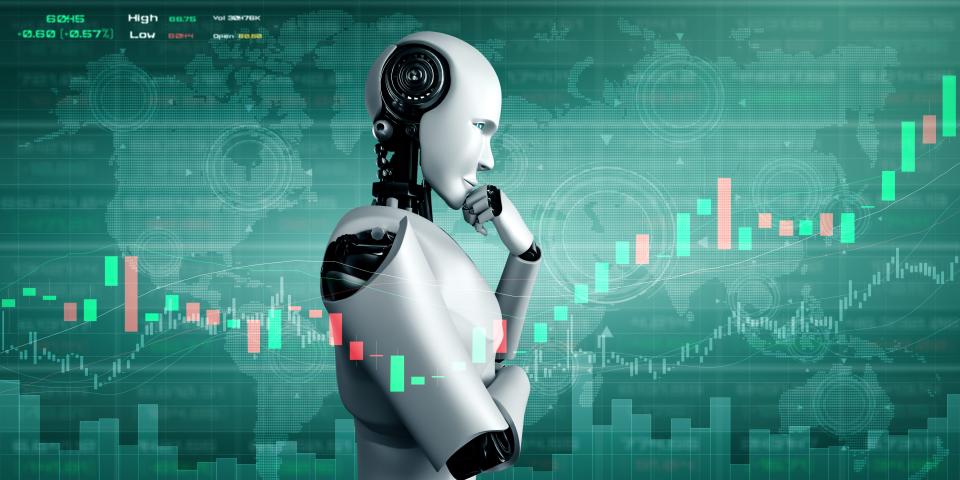
-
Markets are still just in the first phase of an AI-led upsurge, Goldman Sachs wrote in a recent research note.
-
Nvidia is the central piece in the opening inning, but analysts still see more upside in further phases of the AI story.
-
The firm says eventually, AI will broaden to benefit other sectors, such as computer services.
Artificial intelligence has already propelled markets into overdrive, and yet this equity power fuel is nowhere close to running low, Goldman Sachs said.
Instead, stocks are just in the first phase of the AI-led upsurge, which will broaden out to uplift more and more sectors, the bank said in a Tuesday post.
“If Nvidia represents the first phase of the AI trade, Phase 2 will be about other companies that are helping to build AI-related infrastructure,” it said. “Phase 3 deals with companies incorporating AI into their products to boost revenue, while Phase 4 is about the AI-related productivity gains that should be possible across many businesses.”
Here’s a deeper rundown of Goldman’s AI timeline:
First phase
Ever since ChatGPT sparked the AI race in late 2022, chipmaker Nvidia has catapulted in markets. Given that its semiconductors are the basis for this emerging software, the company has made itself a cornerstone of the technological transition, climbing as much as 590% in this period.
“Remarkably, though, those gains have been entirely driven by earnings growth: The company’s price-to-earnings ratio is barely higher than it was at the start of last year,” Goldman said.
Supporting the view that the first phase is not over, analysts see even more gains ahead. Recently, Evercore ISI put out a bull target of $1,540, representing 81% upside from Friday’s stock price.
“We think investors underestimate the importance of the chip+hardware+software ecosystem that Nvidia has created,” analysts said.
Second phase
Eventually, Goldman expects other firms to benefit from the AI buildout, though this isn’t limited to just semiconductor producers and designers. Cloud providers, computer equipment makers and security software developers will all have a part to play.
That also extends to real world infrastructure, as AI will need expansive data centers to run it — a boost to everything from real estate to the utility sector.
It’s a bet also made by investing legend Steve Eisman, who previously explained that the new GPUs require three times as much electricity as traditional hardware. The accelerated power demand will amplify spending on grid improvements and the companies that run it.
Third phase
As generative AI advances, firms that can integrate the technology into their offerings will win out, Goldman said.
Already, top tech firms are racing to implement services that lean on AI, and investors have rewarded those that best do so. For instance, Wedbush Securities’ Dan Ives has long celebrated Microsoft’s CoPilot tool as one example, calling it an “iPhone moment” for the company.
Its stock has gained as much as 14.4% this year.
Fourth phase
With infrastructure and services established to support AI over the long-haul, the technology will have free reign to maximize company productivity across the economy, Goldman said.
“Software and services companies and commercial and professional services firms appear to have the biggest potential for earnings gains from AI, because they have a combination of relatively high labor costs overall and a high share of their labor bill that may be exposed to AI automation,” it wrote.
Read the original article on Business Insider
Source: finance.yahoo.com
